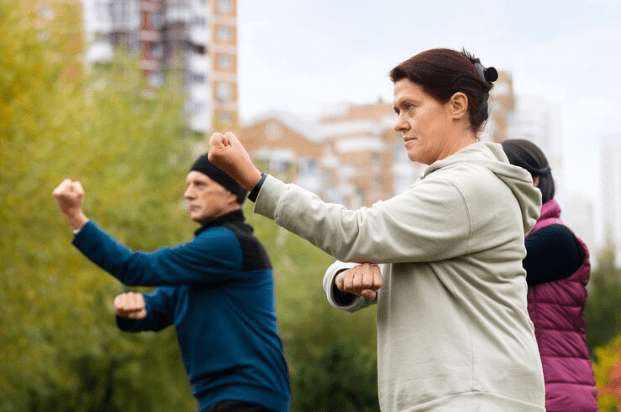5 Heartwarming Ways to Reduce Loneliness in Elderly Individuals
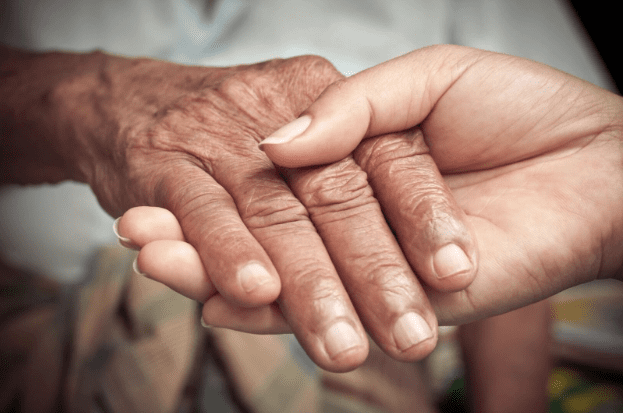
Do you find your aged parents or grandparents sad or depressed and unsure about what’s causing it? Well, loneliness is the most common factor you should consider for their sadness. There can be many reasons for their loneliness, such as:
- Social isolation
- Loss of loved ones
- Health issues
- Mobility limitations
- Change in living arrangements
- Technological barriers
Whatever the reason, it's important to understand that loneliness can lead to depression, anxiety, dementia, obesity, high blood pressure, Alzheimer’s disease, and many more, among elder individuals. However, there is hope. You can make a difference in their lives by helping them live a fuller and healthier life by following these tips on how to reduce loneliness in the elderly. Let’s read and understand each point in detail:
5 Ways to Reduce Loneliness in Elderly Individuals
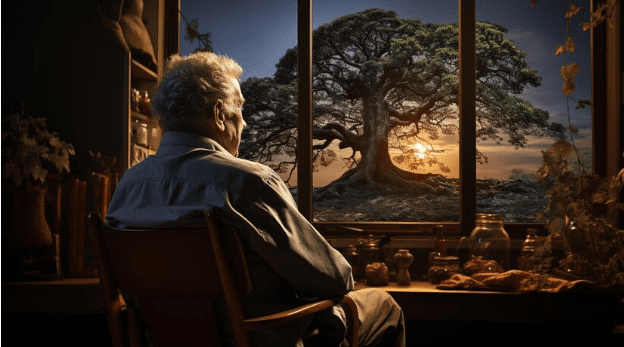 Encourage visitors to spend time with seniors.
Encourage visitors to spend time with seniors.
The most effective way to help the elderly in fighting with loneliness is to spend time with them. You don't need to worry if you don't have enough time due to your busy schedule; you can take the help of visitors. Local contacts, such as trusted neighbours, family members and friends, play an important role. Those who live nearby are usually happy to come by and check on them. Contact them to express the importance of their visits. Also, you can schedule or share specific times or days throughout the week when their visits would be most appreciated. This provides consistent interaction without overwhelming any single visitor.
Face-to-face interactions release oxytocin, a hormone related to bonding and stress reduction. Oxytocin is released during positive social interactions such as hugging, hand-holding, or even engaging in meaningful conversations. This hormone stimulates feelings of trust and emotional closeness and strengthens bonds.
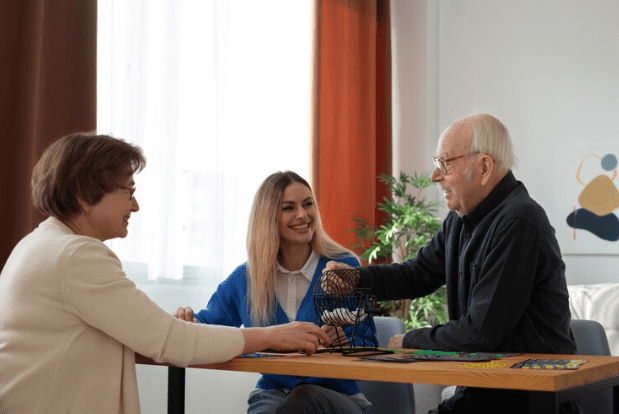
Join the University of the Third Age (U3A)
The University of the Third Age (U3A) is not a college building, though it is a global movement that promotes lifelong learning among elderly and lonely older adults. It is run by volunteers and held during the day which is convenient for retirees and older adults who have more flexible schedules. U3A has no exams, that's why it does not provide formal degrees or qualifications. Different topics and activities show that there is something of interest for everyone. This continuous learning helps keep the mind active, stimulates cognitive function, and improves intellectual well-being.
 How to Get Involved
How to Get Involved
By following these steps, you can help your elderly family member get involved with the University of the Third Age (U3A)
- Find Your Local U3A: Look for a U3A chapter nearby where they can join.
- Attend Orientation: Convince them to attend orientation sessions or open days to learn more.
- Join Courses: Help them enrol in courses they're interested in.
- Join Interest Groups: Motivate them to participate in groups that focus on their hobbies or favourite topics.
- Volunteer: You can suggest that your elderly family members volunteer to share their skills and knowledge within the U3A community.
Promote Regular Exercise and Confidence
Ask your elderly to do exercises that raise the heart rate and require continuous movement for atleast 20-30 minutes. These include aerobic exercises such as:
- Walking
- Swimming
- Yoga
- Tai chi
- Strength Training
- Dancing
- Cycling
- Group Exercise Classes
It is possible to do these exercises at home. However, joining an exercise class will encourage them to participate regularly as they would surely feel much better from it. These exercises help their bodies release neurotransmitters, endorphins, and chemicals in the brain that act as natural painkillers and help to switch moods.
Also, these activities can help improve blood circulation, and body image. Body image is essential in helping the elderly feel good about themselves and avoid senior isolation. You can give compliments and positive comments to increase the self confidence of seniors.
Companion For Home Health Care
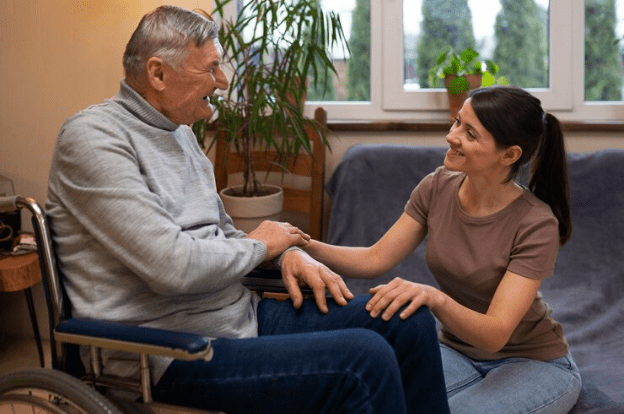
Companion can be beneficial for seniors who are growing old alone with no family. It helps to handle feelings of loneliness, anxiety, and depression. Therapeutic techniques like Cognitive-Behavioral Therapy (CBT) focus on changing negative thought patterns and behaviours to provide practical coping strategies made according to the individual's needs. For seniors, personal care at home provides a confidential and supportive environment to express emotions and concerns. This process helps seniors develop healthier perspectives, improve self-esteem, and manage stress. A companion for home health care also plays a crucial role in providing the strength to deal with challenges more effectively as they age.
Have a pet
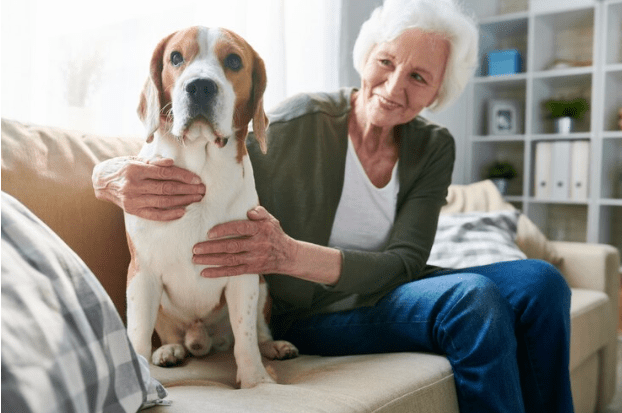
Pet therapy has medicinal benefits, particularly for the elderly and loneliness concerns. Dogs and cats are the perfect choices due to their affectionate nature. They easily form strong bonds with their owners. You can bring dogs, especially breeds known for their calm demeanour, which are the best companions for those who enjoy walking or have a fenced-in yard. Whereas cats are known for their independent yet affectionate nature and best for less mobile individuals. Both these pets help seniors maintain a daily routine and give responsibility, which makes them indulged and reduces lonely time.
Also, when they spend time bonding with an animal, it triggers a chemical reaction in their brain. This chemical reaction reduces the stress hormone cortisol and increases the feel-good hormone serotonin. This leads to immediate drops in heart rate, blood pressure, and stress levels. Over time, interactions between pets and humans can lower cholesterol levels, depression, and provide protection against heart disease and stroke.
Community Garden
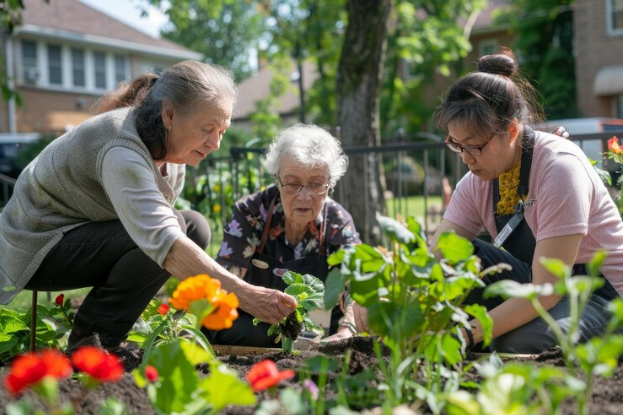
Community gardens can be a source of physical activity and social interaction. Senior citizens get the chance to learn and develop their skills through gardening, as it involves digging, planting, watering, and harvesting. These activities can also help improve flexibility, strength, and overall physical well-being. Also, if they have a vast knowledge of gardening, they can teach others as well, which can create an environment of continuous learning and personal growth. Spending time outdoors, connecting with nature and cultivating plants can be calming, which can help reduce loneliness. They also yield fresh, organic food that can improve dietary habits and help seniors achieve better health outcomes.
Conclusion
If you need a companion for home health care for your senior loved ones, consider Family Ties Home Care as the best elderly loneliness solution. Our dedicated caregivers provide love, respect, and comprehensive care, assisting with activities such as dressing, monitoring, meal planning and preparation, light housekeeping, and more. Whether you require long-term support or short-term companionship, Family Ties Home Care is here to help.

